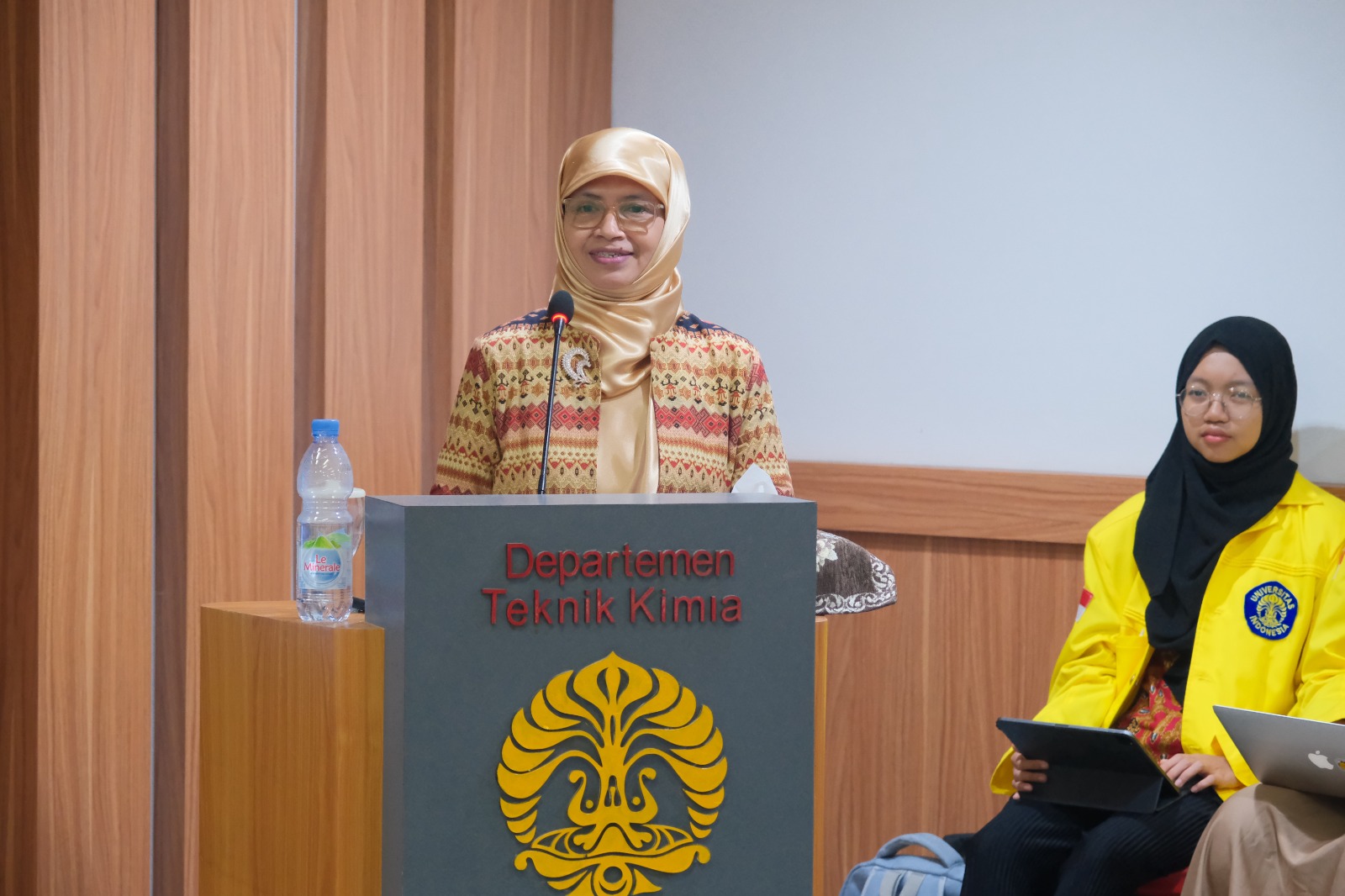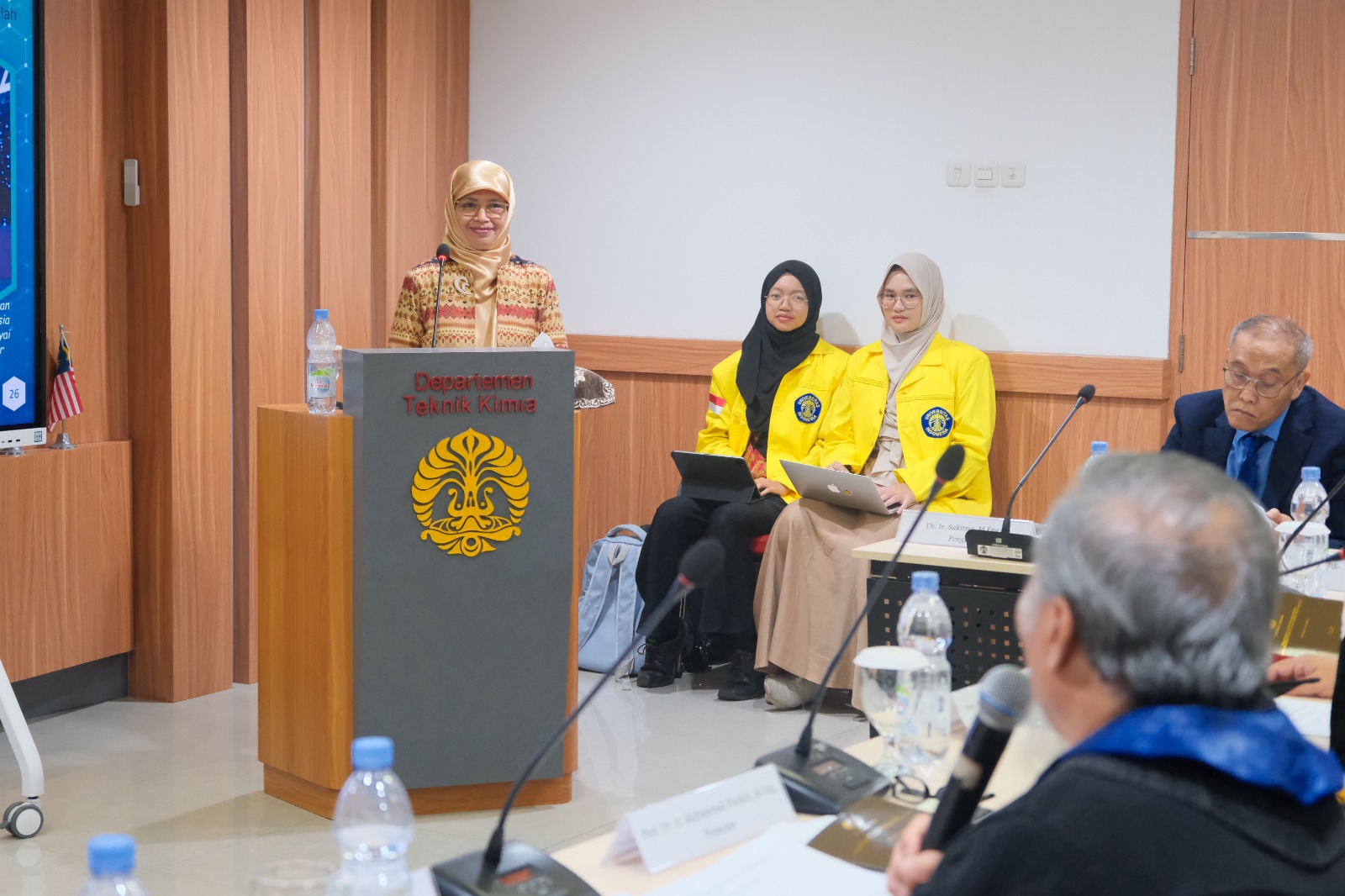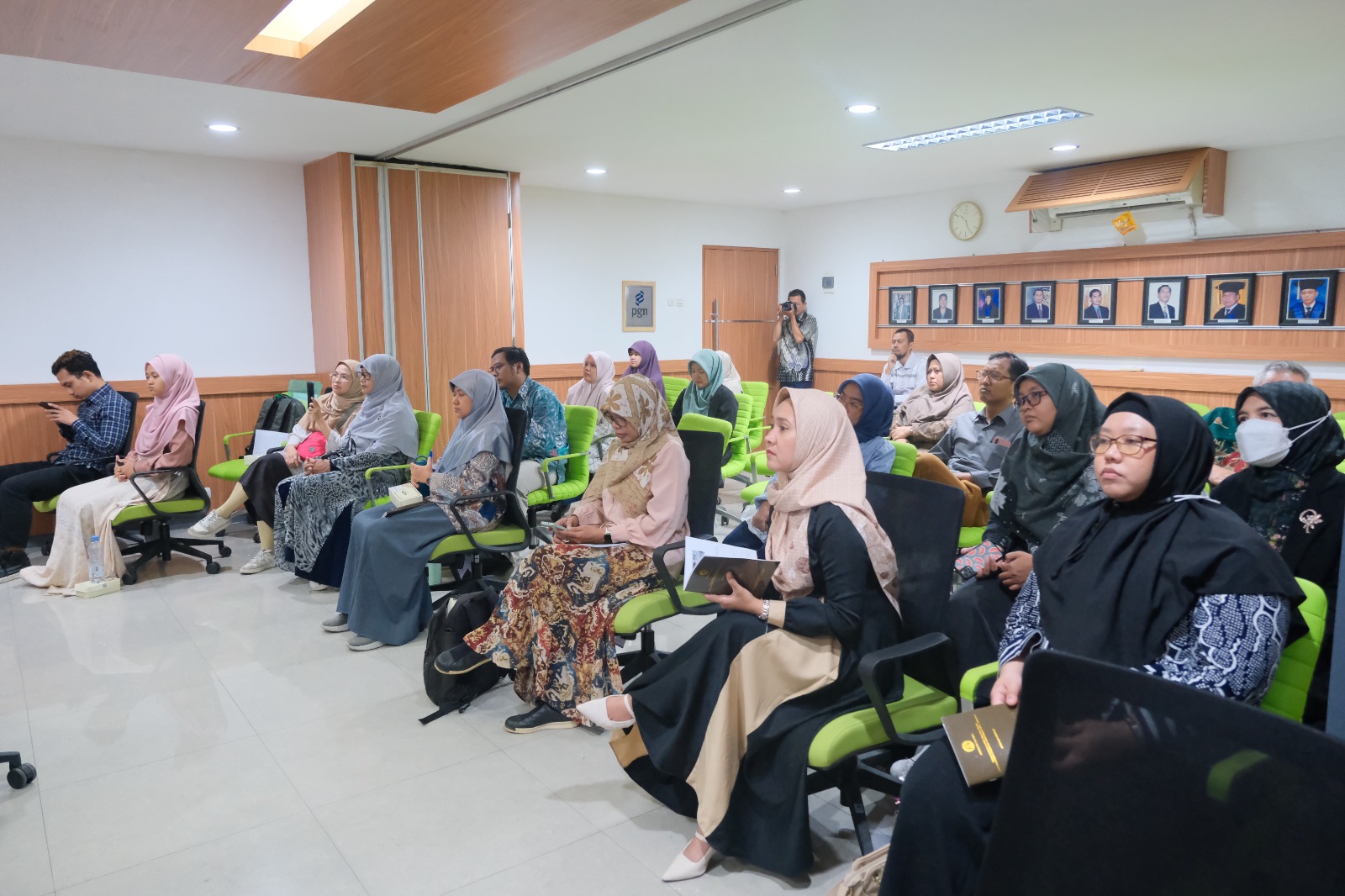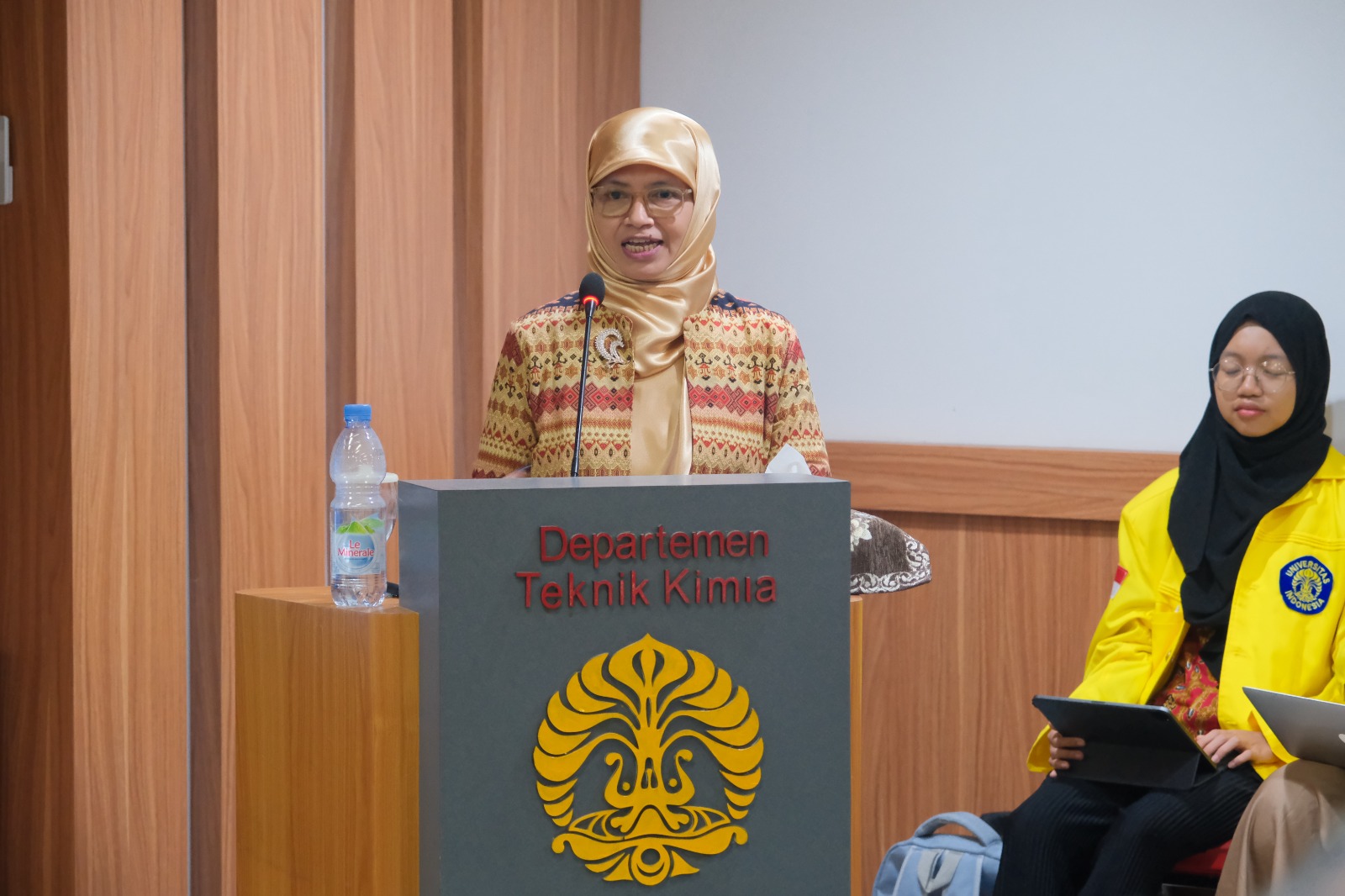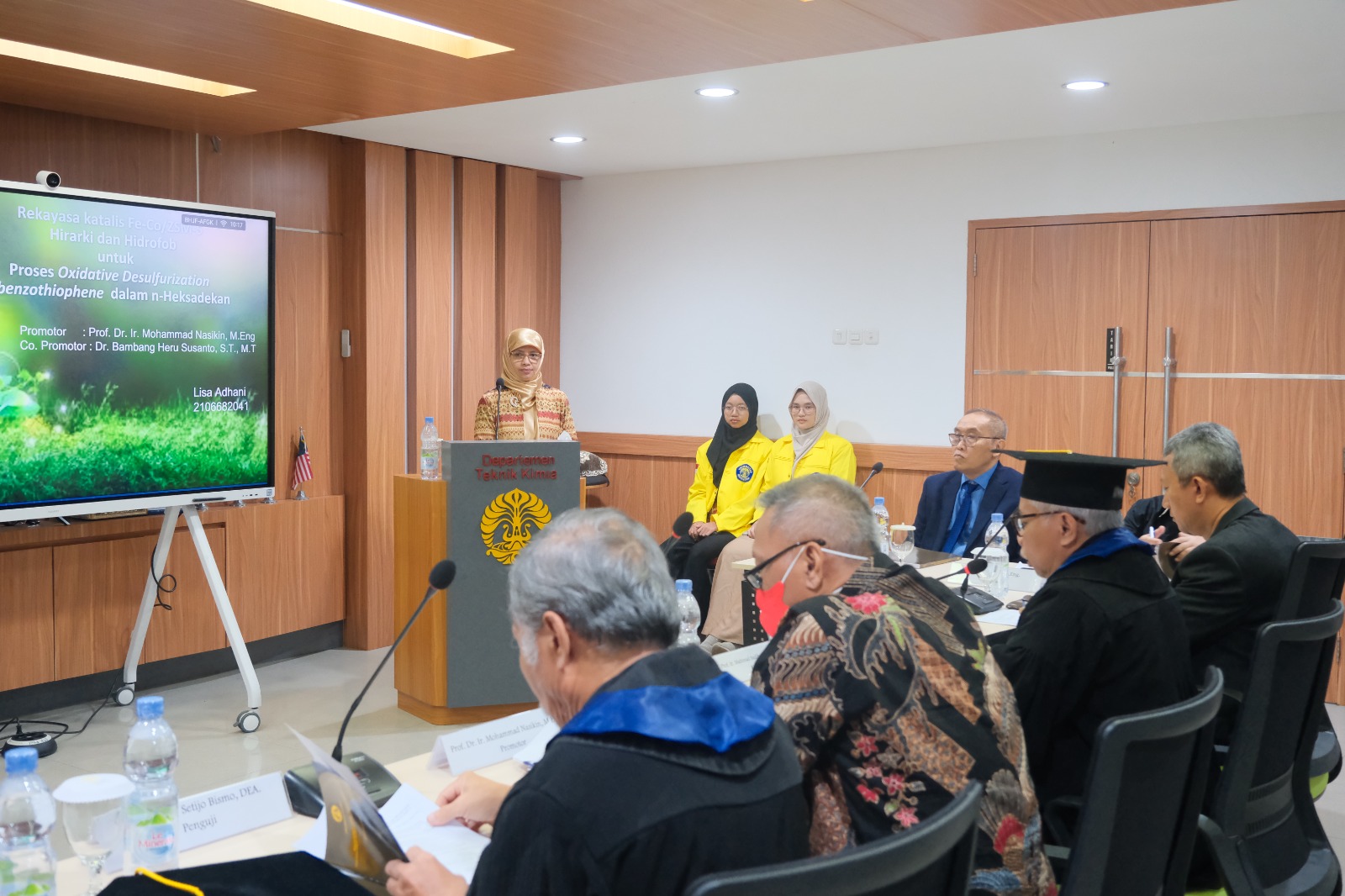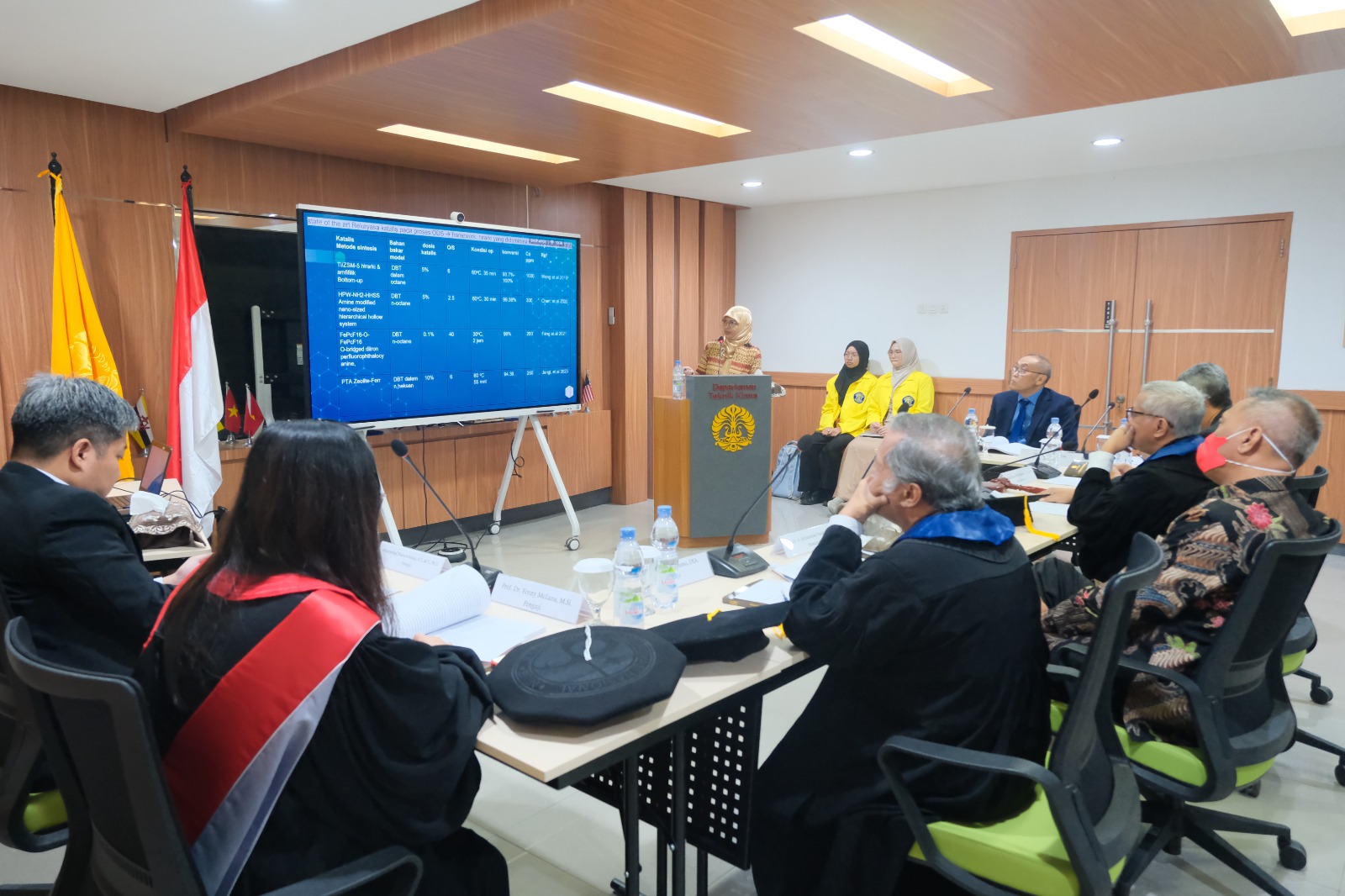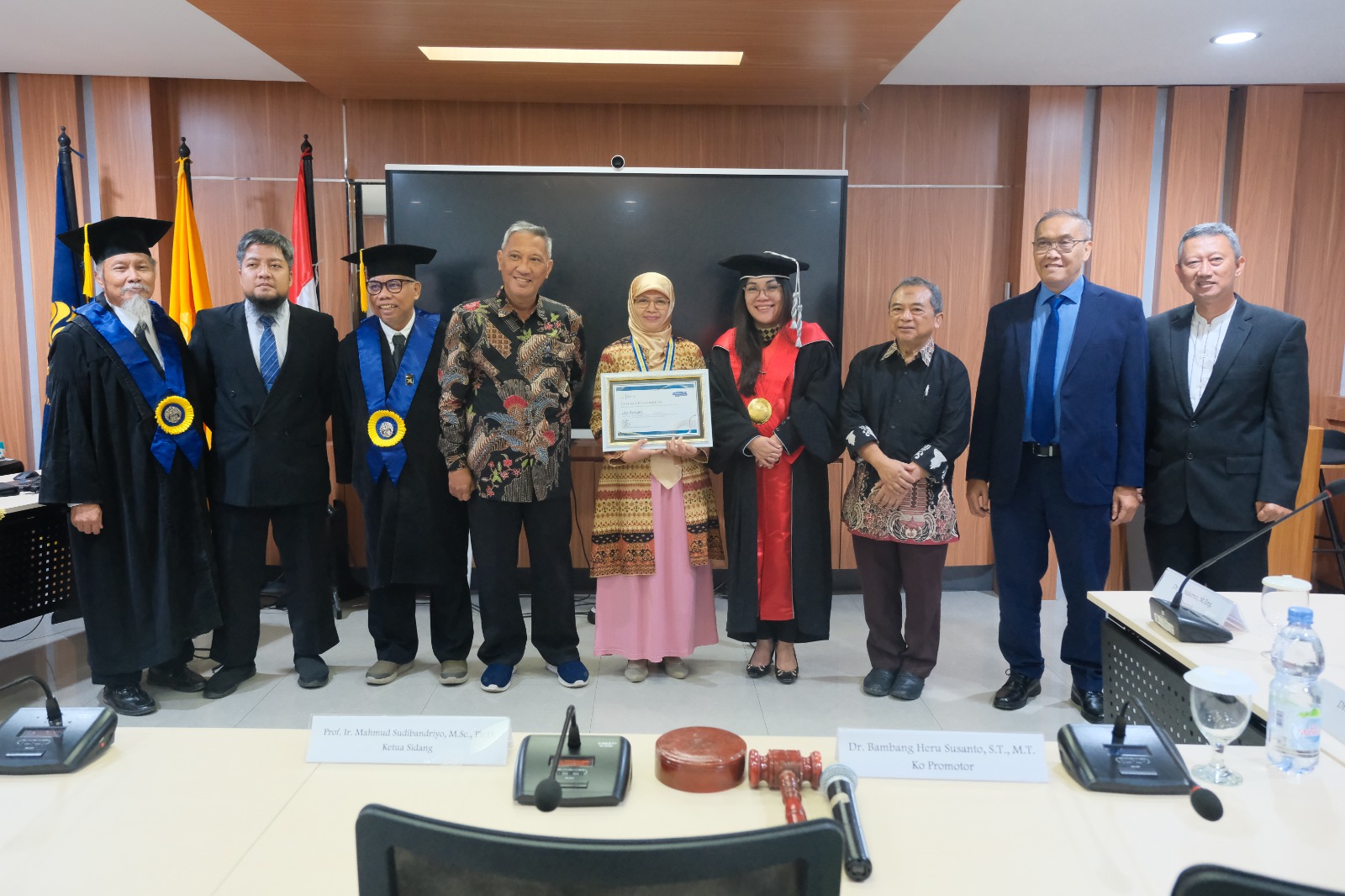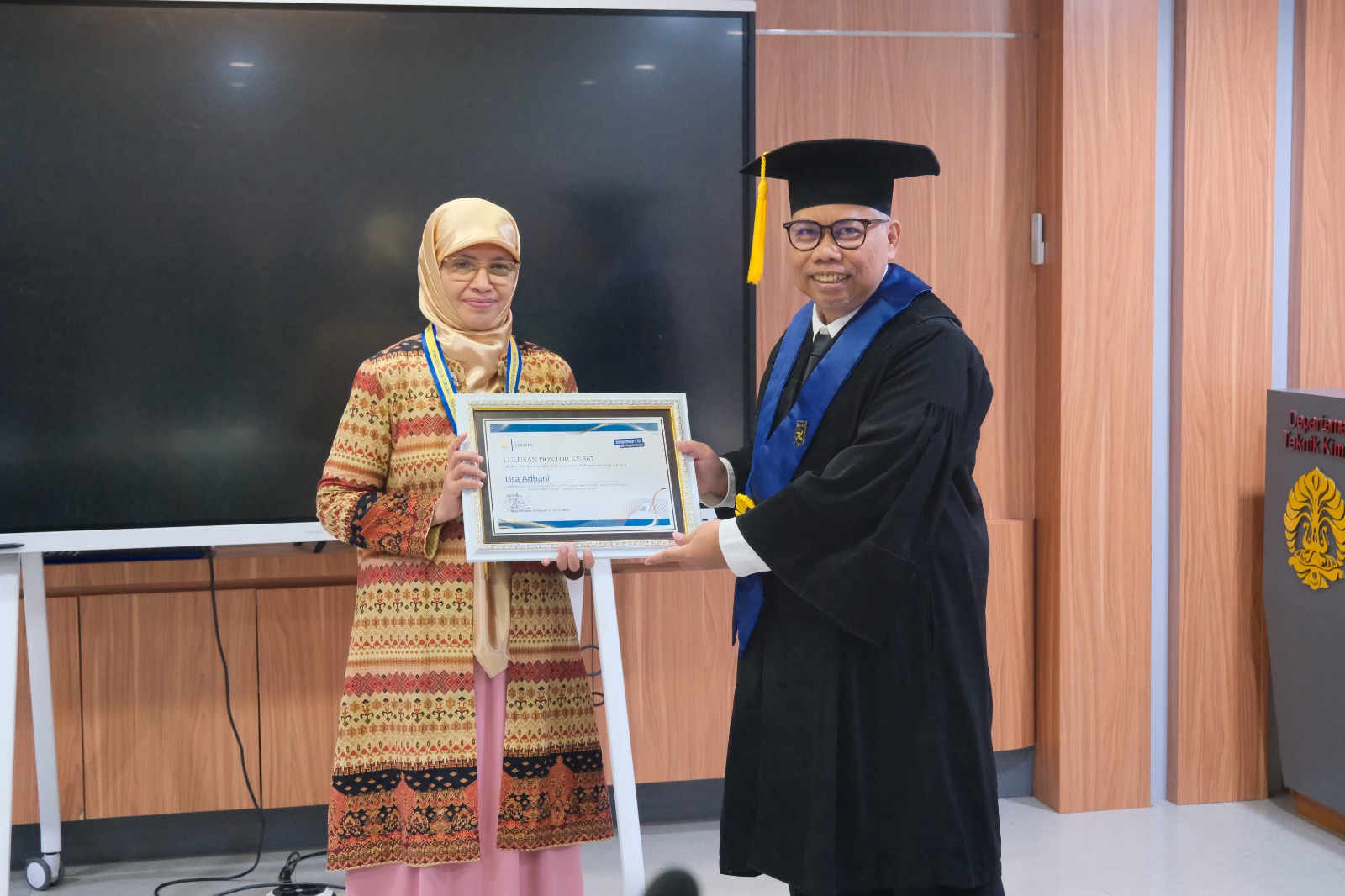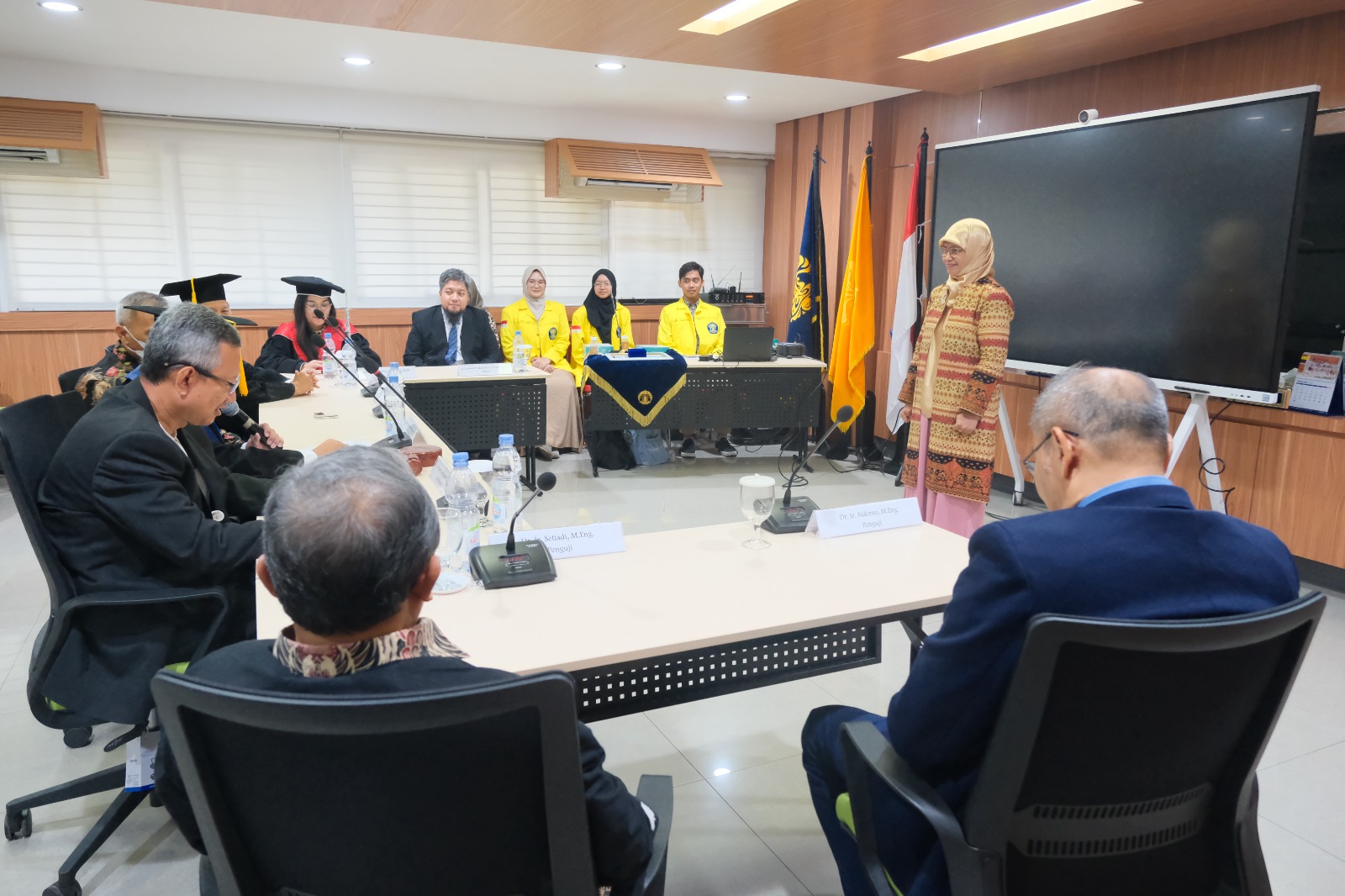Lisa Adhani, a doctoral student from the Chemical Engineering Department of the Faculty of Engineering, Universitas Indonesia (FTUI), has completed her doctoral studies with a GPA of 3.50, earning the “Satisfactory” distinction. Lisa is now the 76th Doctor from the Chemical Engineering Department and the 567th Doctor in FTUI. Her doctoral research focused on the development of Fe-Co/ZSM-5 catalysts with a hierarchical and hydrophobic structure for a more environmentally friendly oxidative desulfurization (ODS) process in n-Hexadecane.
Gas emissions from fuel combustion are one of the leading causes of air pollution, with sulfur playing a significant role in environmental degradation. To address this issue, oxidative desulfurization (ODS) has proven to be an effective method for removing sulfur from fuels at very low levels under milder operating conditions. However, the challenge remains in selecting the right catalyst to enhance the ODS effectiveness.
In her research, Lisa successfully engineered catalysts with a hierarchical pore distribution dominated by mesopores through a top-down dealumination method and Fe-Co impregnation. The engineered catalysts, including Fe-Co/LZ-H, Fe-Co(5)/ZSM-5Hierarchy, and Fe-Co(15)/ZSM-5Hierarchy, achieved hierarchical factor (HF) values of 0.05, 0.08, and 0.14, respectively. “The success in creating this hierarchical pore structure is a crucial step in enhancing the catalyst’s efficiency in the ODS process,” explained Lisa Adhani.
The engineered catalyst structures resembled FER-type zeolites for Fe-Co/LZ-H and Fe-Co(5)/ZSM-5Hierarchy, while Fe-Co(15)/ZSM-5Hierarchy matched MEL-type structures. FER-type structures proved to be more effective in the ODS process due to their larger surface area, optimal pore radius, and large mesopore volume with hydrophobic characteristics. “This structure effectively overcomes steric and biphasic hindrances, which are the main challenges in the desulfurization process,” said Lisa. The hydrophobic nature of the catalyst was also demonstrated by a water contact angle of 115°, ensuring strong interaction between the catalyst surface and DBT compounds, facilitating DBT diffusion into the catalyst pores.
The reaction mechanism was analyzed using Gaussian09 software from the perspective of density functional theory. The analysis results indicated that the reaction was exothermic, allowing it to quickly pass through the transition stage, thus enhancing the catalyst’s effectiveness. Lisa elaborated, “This analysis helps to understand that the reaction in the engineered catalyst has an energy profile that supports high efficiency.”
Simulations of DBT diffusivity in n-hexadecane on the catalysts showed significant Effective Diffusivity (Deff) values of 1.65E-05 cm²/s for Fe-Co/LZ-H and 1.04E-05 cm²/s for Fe-Co(15)/ZSM-5Hierarchy. These values indicate that catalyst engineering can enhance the mass transport of reactants to the catalyst surface, successfully overcoming steric and biphasic hindrances. The Knudsen Diffusivity (Dk) values for various catalysts demonstrated that diffusion in the system was controlled by transport within the mesopores, with Dk values larger than Deff.
Lisa’s research is expected to contribute significantly to the development of more environmentally friendly desulfurization technology. “The developed catalysts are not only effective in removing sulfur from fuels but also enable a more energy- and cost-efficient desulfurization process,” said FTUI’s Acting Dean, Prof. Ir. Mahmud Sudibandriyo, M.Sc., Ph.D. “This discovery has great potential for application in the fuel industry, reducing sulfur emissions, and helping create a cleaner and healthier environment,” he added.
This research was presented in an open doctoral promotion session held on September 3, 2024, chaired by Prof. Ir. Mahmud Sudibandriyo, M.Sc., Ph.D., as the session chair, with Prof. Dr. Ir. Mohammad Nasikin, M.Eng., as the promoter and Dr. Bambang Heru Susanto, S.T., M.T., as the co-promoter. The examination committee consisted of several experts, including Prof. Dr. Ir. Setijo Bismo, DEA., Dr. Ir. Setiadi, M.Eng., Dr. Ir. Sukirno, M.Eng., Muhammad Ibadurrohman, S.T., M.T., Ph.D., and Prof. Dr. Yenny Meliana, M.Si., from the BRIN Advanced Chemistry Research Center, Serpong.
With her accomplishments, Lisa Adhani has made a significant contribution to the development of desulfurization catalysts, offering an applicable solution to the increasingly urgent global environmental challenges. Her achievements are expected to inspire researchers and students in chemical engineering to continue exploring and developing technologies that benefit environmental sustainability and industrial progress.
***
Public Communications Office
Faculty of Engineering, Universitas Indonesia

